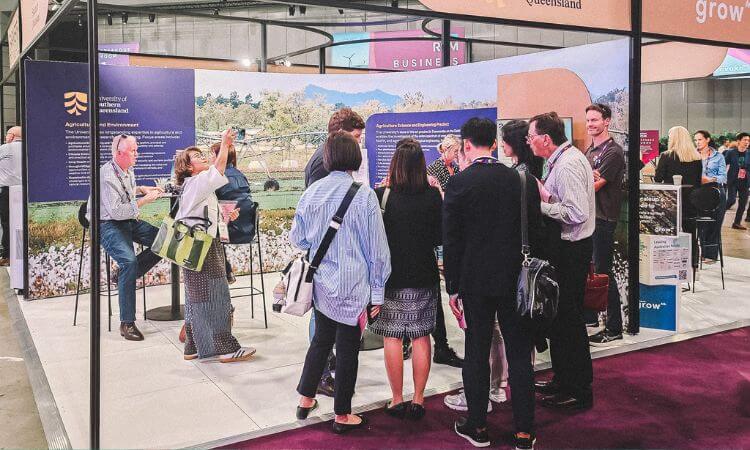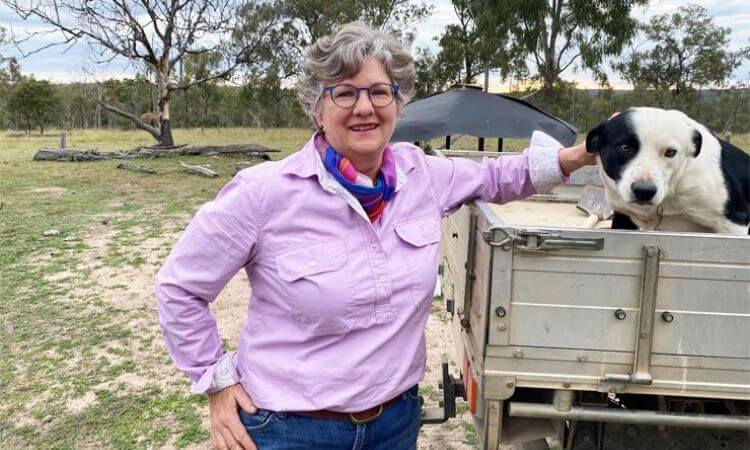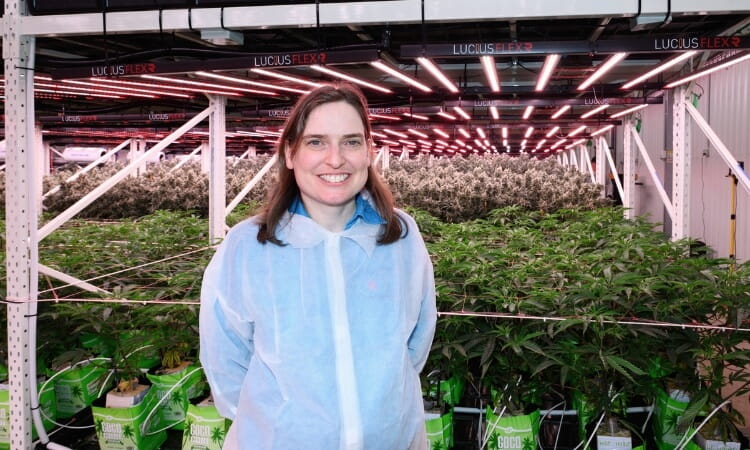Leaders in the field: Agricultural innovation at evokeAG 2025

The University of Southern Queensland (UniSQ) has showcased its groundbreaking research and technologies at evokeAG 2025, putting the Darling Downs region on the global map for shaping the future of farming.
Held on February 18-19, the event brought together global leaders in agriculture, technology, and sustainability. UniSQ was represented by the SQNNSW Innovation Hub, the ‘Changing the Game’ research team, and the UniSQ Agriculture and Environment Flagship.
A standout feature was the sideline bus tour, Transforming Agriculture in Real Time, which highlighted the region’s cutting-edge agrifood innovation.
Facilitated by Toowoomba and Surat Basin Enterprise and supported by the SQNNSW Innovation Hub, it was the largest sideline presentation for the event, drawing 95 delegates from across Australia and around the globe. Attendees included a UK delegation from the British High Commission, Innovate UK, and a Taiwanese delegation from the Ministry of Agriculture and Economic Affairs.
The tour featured a presentation of the Tosari Crop Research Centre, hosted by the Ag Tech Adoption research team, showcasing the activities being undertaken within the Changing the Game project.
Funded by the Grains Research & Development Corporation and the SQNNSW Innovation Hub (with support from the Australian Government’s Future Drought Fund), the project aims to improve data driven decision-making for the grains industry in response to variable seasonal conditions.
Director of the Centre for Agricultural Engineering Professor Bernadette McCabe also presented on the tour at Pyrocal, a business based at Wellcamp Business Park, discussing the University’s collaboration on an Australian Research Council (ARC) project assessing biosolids biochar as a biofertiliser.
UniSQ students played an active role, showcasing their expertise through live demonstrations of drone technology that captivated attendees.
Through its involvement in evokeAG 2025, UniSQ has once again demonstrated its leadership in agricultural innovation, showing how regional universities can drive global change in sustainable farming practices and technology.


